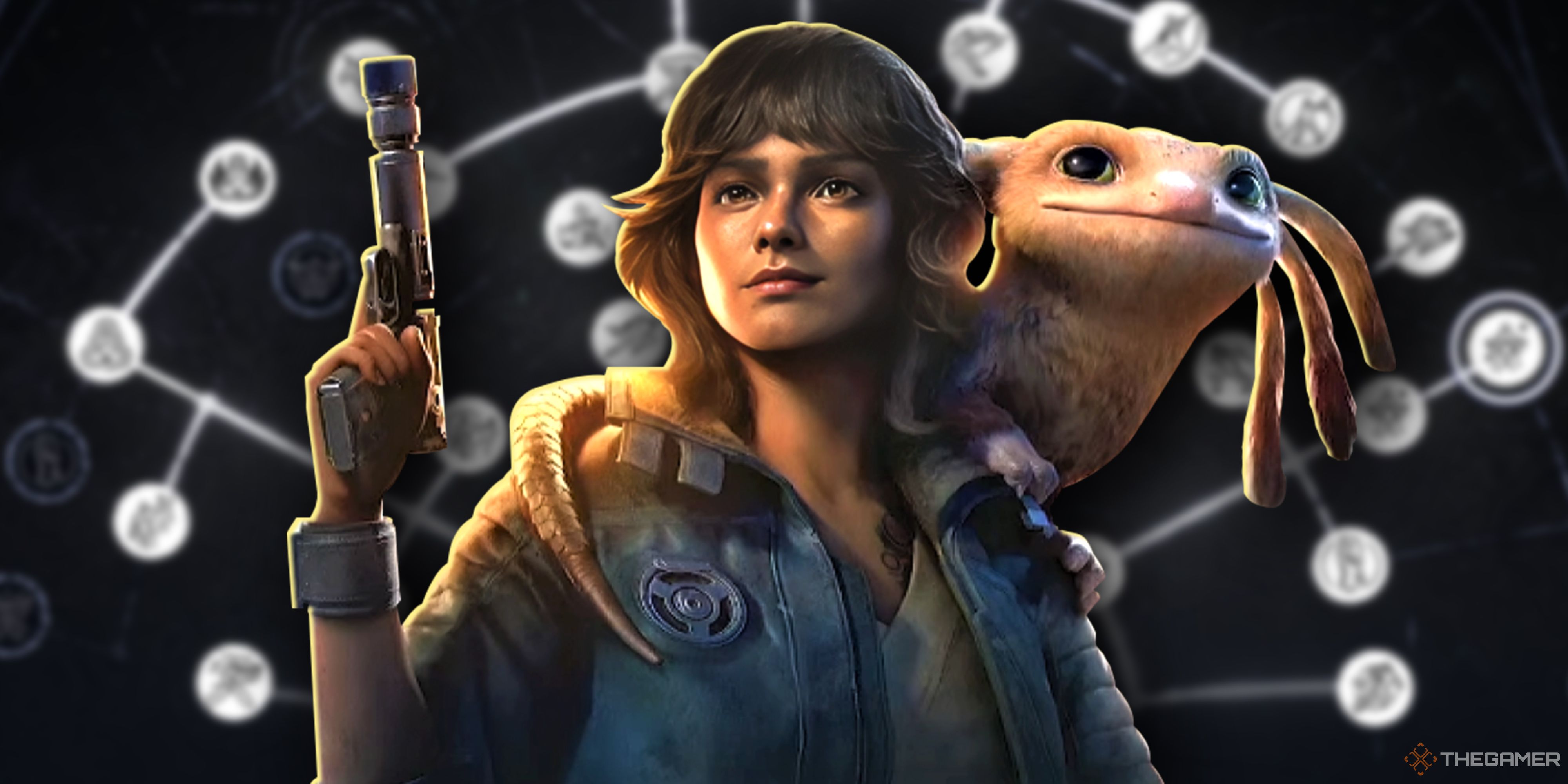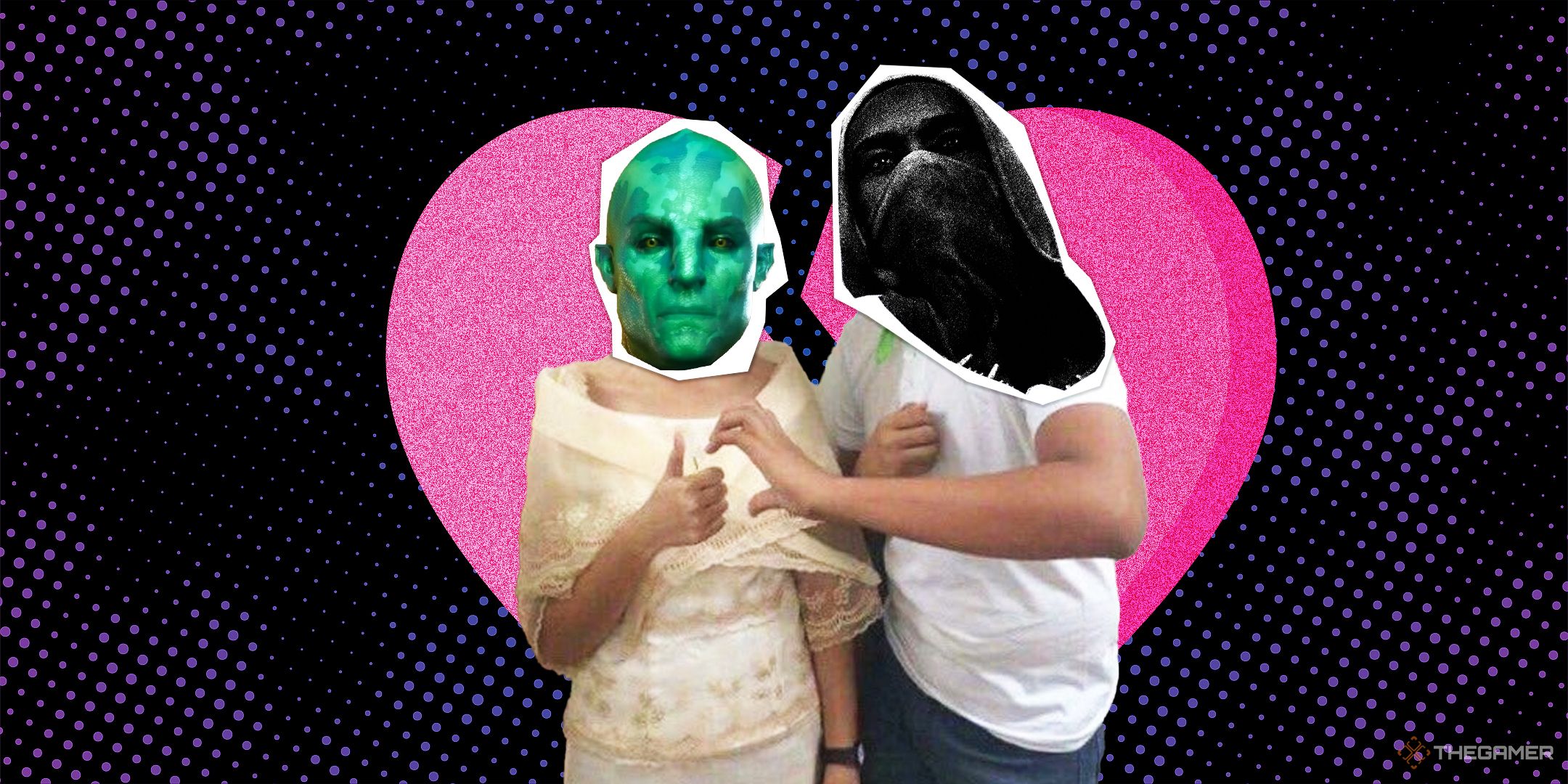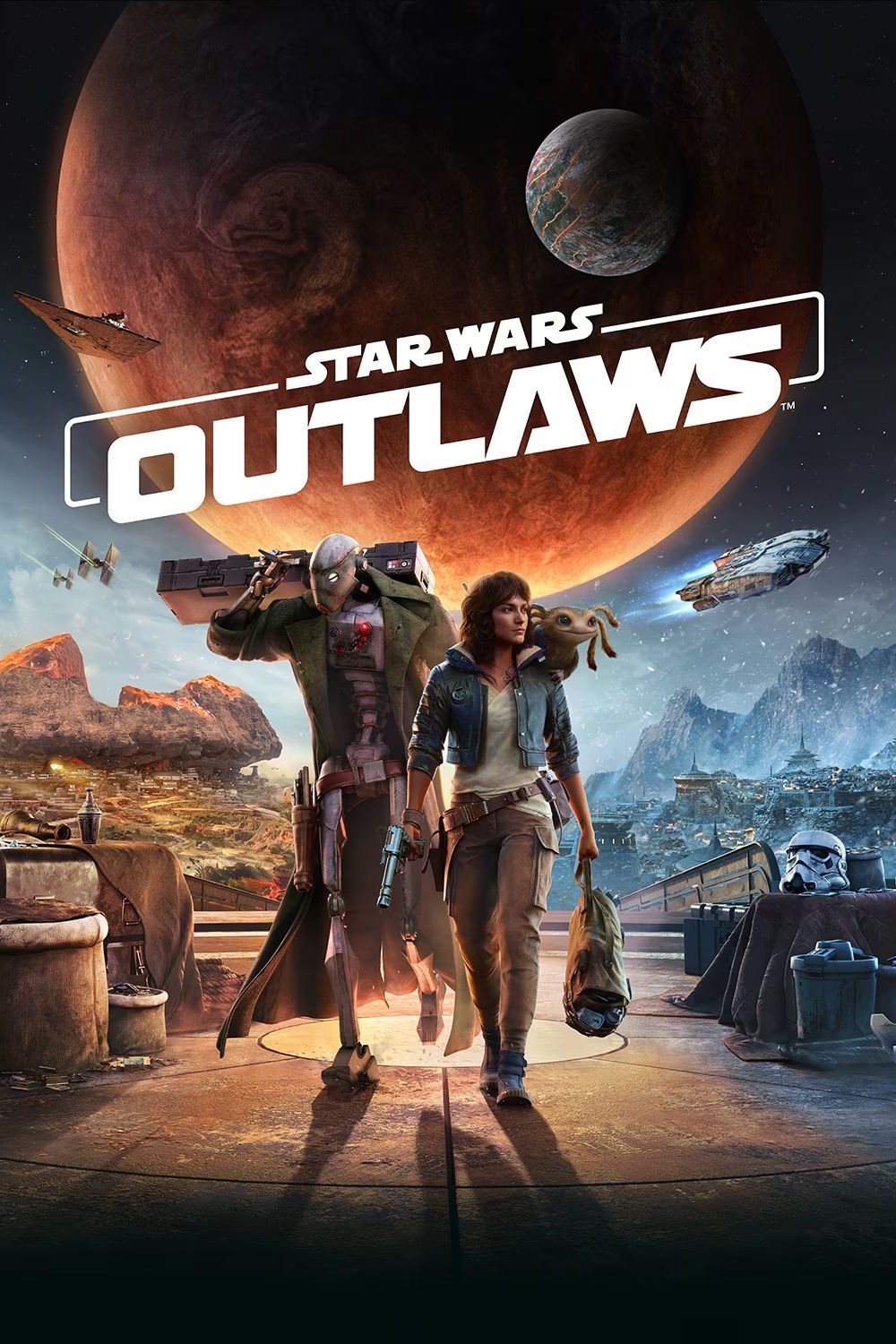I’m relieved that Star Wars Outlaws will have neither skill trees nor numbies

Highlights
- Skill trees are frustrating when they are filled with meaningless upgrades and numbers, distracting from the actual building mechanics in games.
- Star Wars Outlaws breaks with traditional skill trees and focuses on presenting narrative reasons for character development.
- The game’s unique approach to character upgrades, tied to experienced NPCs and story missions, provides a more meaningful experience.
I hate skill trees. Now it’s out. I hate them. I hate when they give me access to new attack combinations that I know I’ll never use because the game’s combat mechanics make it too easy to get away with blind, mindless button mashing. I hate when they’re full of numbers and increase the power of certain types of attacks by tiny percentages. I hate when everything in a skill tree seems meaningless because it has no actual use and because the game doesn’t rely heavily enough on actual building mechanics to be interesting for fear of losing casual players.
I hate it when a game rewards me with skill points for stupid things like finding lore drops or fighting a certain number of enemies so my character has new abilities or better hit rates or more strength that seem to have been magically beamed into their head for no reason other than to help me live out my power fantasy better. It all feels meaningless. What is a level up in real life? What does the random experience point mean? What does it affect a character? It’s unclear. Gamers just love numbies: every little upgrade is a little dopamine hit.
Yes, the same applies to device upgrades.
Most modern RPGs have them, though, so I have to put up with them. My partner loves numbies in games like Ghost of Tsushima and God of War Ragnarok, even though both let you max out any skill in any skill tree, making them completely useless for creating builds. Again, it’s about the power fantasy – most players don’t play these games to get deep into builds anyway.
Star Wars Outlaws will surprisingly have no skill trees
What I’m really looking for isn’t the death of skill trees, which can be useful if implemented well. I’m looking for this oft-quoted, almost cliche thing called ludonarrative harmony. If ludonarrative dissonance is a discrepancy between gameplay and story, I want there to be a story reason why my character is becoming more skilled.
It seems that Star Wars Outlaws will be the game that gives me just that. This surprises me as someone who is very suspicious of Ubisoft games in general, a feeling I’ve written about many times before. When we picture a Ubisoft game, we picture maps full of markers, towers you have to climb to reveal the map, loads of numbies tied to gear upgrades, and endless errand quests. Yet Outlaws seems to disprove that stereotype at every turn. We know that Outlaws’ planets will be much smaller and denser than expected, that there will be no towers to climb, and that the maps won’t be flooded with things to do (at first), as Kay will have to explore each planet to find out what it has to offer.

Related
Avowed is right not to include romantic relationships
Platonic relationships can be just as meaningful as a romantic relationship, if not more meaningful.
We also now know that Outlaws takes a different approach to character progression. There won’t be leveling up via XP points, nor incremental stat upgrades to get excited about. If you want to upgrade your gear or learn new skills, you’ll need to find experts who will grant you upgrades in exchange for work. Everyone is a “full-fledged character,” as game director Mathias Karlson said in an interview with IGN, and they won’t be icons you can just jump over to to make yourself as OP as possible from the start. Each will involve a “journey of discovery” where you’ll need to figure out who they are, what they can offer, and how to get to them.
For example, you can overhear information about a Jawa in a cantina, and if you complete a mission for them (in this case, retrieving a tooth from a dead Sarlacc), you can trade it for a ship upgrade. This particular implementation of character progression is clearly intended to combine storytelling and worldbuilding with new skills and gear, and while I can see a hundred ways this could become tedious or boring if done wrong, it at least makes a lot more sense than a typical skill tree full of percentages.
Am I optimistic about Star Wars Outlaws? Almost.
I don’t want to get my hopes up. I’ve been disappointed by Ubisoft games more times than I can count, and I’m not about to let myself be defeated again. At the same time, the narrative that Massive Entertainment has built around Star Wars Outlaws helps to allay many of my fears. The aforementioned interview with IGN shows that the studio explicitly prioritizes quality over quantity and variety over size, focusing on that very Star Wars-specific sense of adventure. Hand-crafted planets have been chosen instead of procedurally generated ones, and the gameplay mechanics are very deliberately woven into the game’s story.
I want Star Wars Outlaws to be good, of course. The way it deviates from our expectations is already a strong start, but there’s no way of knowing how different it will really be until the game comes out. Will this be the fantastical, roguelike Star Wars heist game of our dreams? Maybe, maybe not, but I know it won’t have me staring angrily at giant skill trees, and that’s already more than I expected.

Star Wars Outlaws
Star Wars Outlaws follows Kay Vess as she tries to outmaneuver the galaxy’s deadliest criminals. An open-world action-adventure game from Ubisoft that also features large-scale space battles and a deep story.



